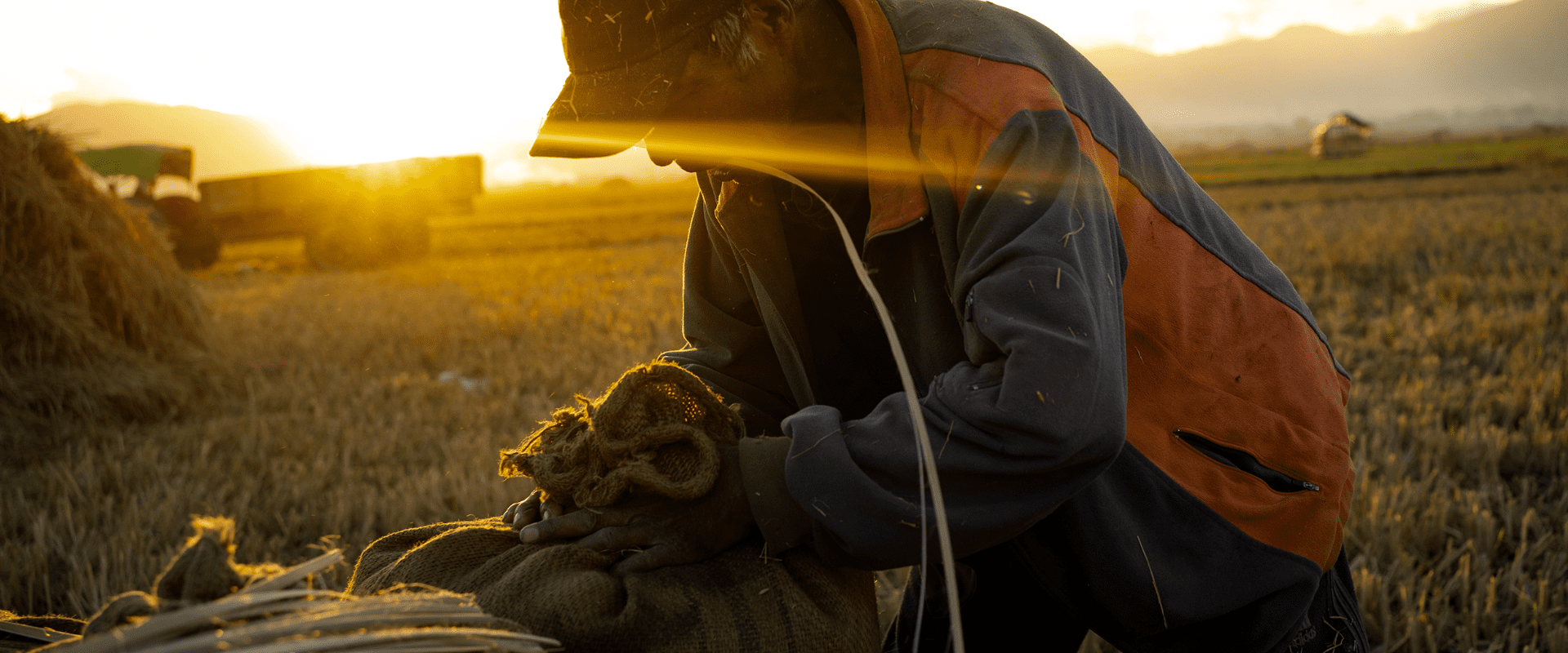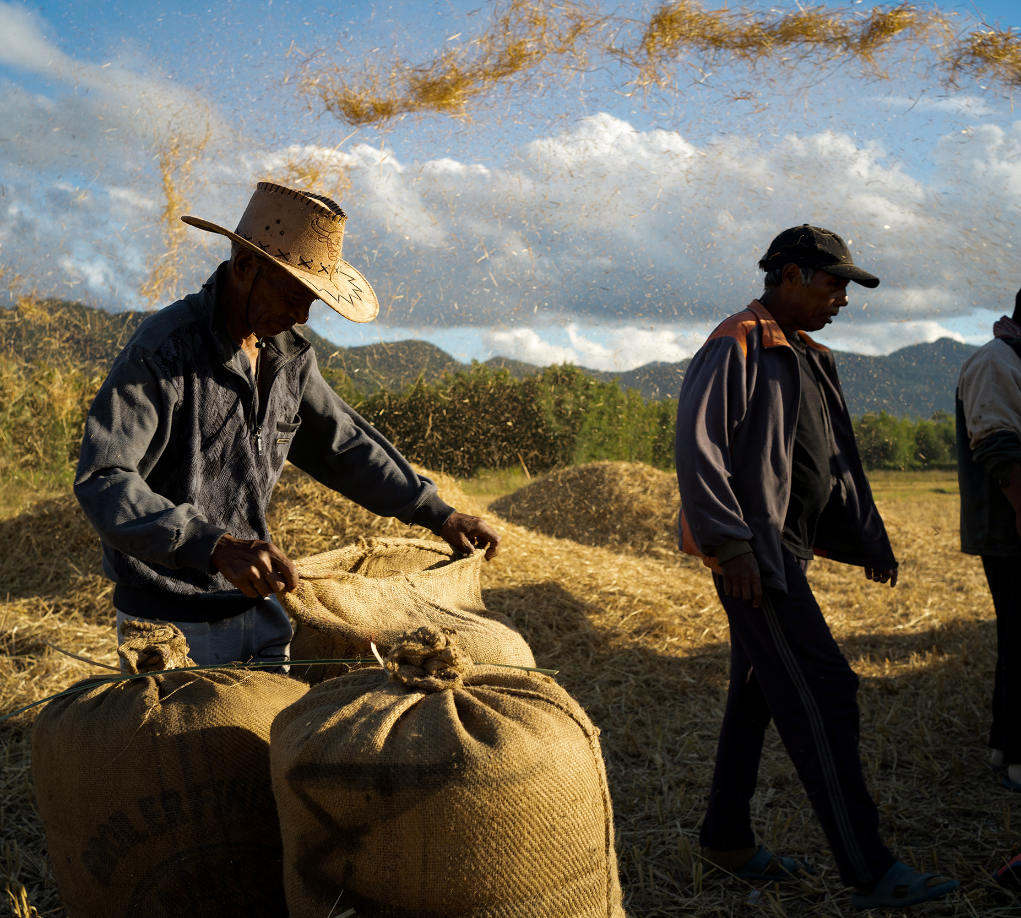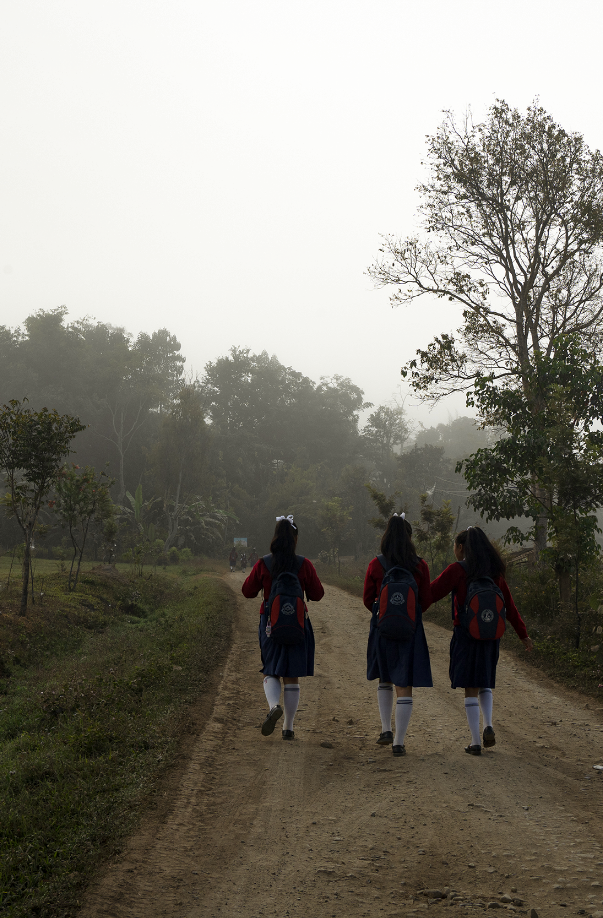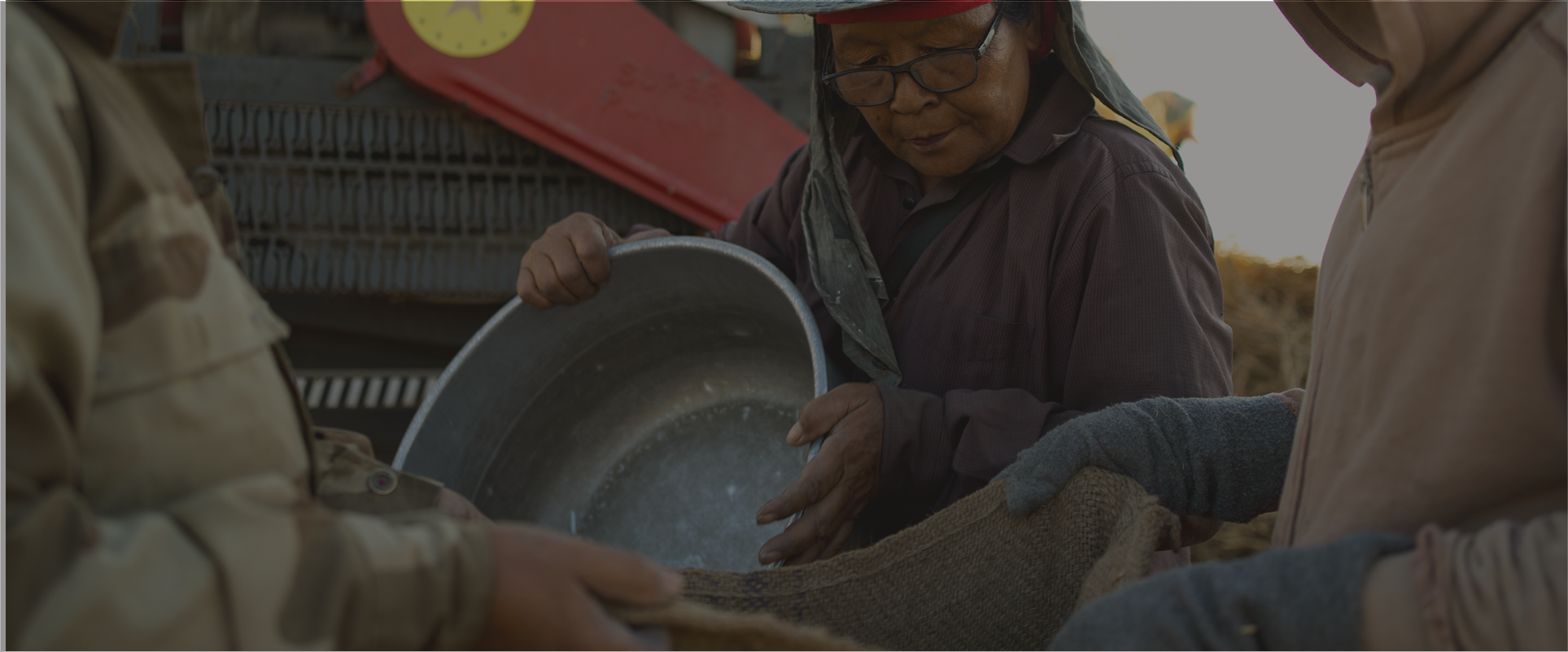
RWUS was established in 1990
by a group of local volunteers committed to improving the situation of women in Manipur's Churachandpur district, a geographically and culturally isolated territory near the borders with Bangladesh and Burma.
Its work first focused on providing livelihood programs and training. "Gradually, the organization set up its own offices and has now become the most important resource center for women in the rural area," says Mary Beth Sanate, the organization's general secretary.

Today, the Rural Women Upliftment Society works directly with more than 5000 local women and participates in national and international forums. In addition, it has expanded its focus to work directly with farmers and LGBTQ groups, demonstrating that work focused on women's development in communities can lead to the most important battles, including the preservation of life on the planet. This includes fighting for human rights, sustainable economic models, pacification of territories, food security, access to water and preservation of the environment. Indigenous Women in India, as in other parts of the world, have become key agents of change in the fight against the climate emergency.


“NORTHEAST INDIA, WOMEN, WHO ARE MOSTLY ARTISANS AND FARMERS, PLAY A KEY ROLE IN CLIMATE RESILIENCE”
says Mary Beth
One of the most successful initiatives by local women, in collaboration with RWUS, is the campaign to save the Tuitha River, the only river in the area.
“The river has been a source of livelihood for many Indigenous Communities, but the government built a huge dam at its mouth, which has caused pollution and severely affected the communities”
Mary Beth described the campaign to save the Tuitha River as a powerful initiative, supported by the International Indigenous Women's Forum (IIWF). The campaign included home visits, distribution of informational materials on the importance of saving the river, and clean-up efforts, among other activities. After two years of work, Mary Beth believes that the river is slowly coming back to life.
"The Indigenous Women from the villages along the river started to organize themselves into committees to protect the river. The local government supported us, distributed materials, and also banned dumping waste in the river. I think that's a milestone for us," says Mary Beth. "We also undertook the Women for Clean Rivers campaign, which seeks not only to clean the river, but also to beautify its banks and prevent people from littering. Additionally, we started a tree planting program and planted close to 1,000 saplings last year".


"The Indigenous Women from the villages along the river started to organize themselves into committees to protect the river. The local government supported us, distributed materials, and also banned dumping waste in the river. I think that's a milestone for us," says Mary Beth. "We also undertook the Women for Clean Rivers campaign, which seeks not only to clean the river, but also to beautify its banks and prevent people from littering. Additionally, we started a tree planting program and planted close to 1,000 saplings last year".
"In a conflict zone like the one we work in, women play a crucial role in peacebuilding. They often take to the streets and act as mediators with state and non-state actors," explains Mary Beth. "It is an area with diverse communities and different religious beliefs, which can create a dividing line. The Local Capacities for Peacebuilding Program provides tools to reduce tensions and increase connections. The young women learn what they have in common in their different histories through the concept of composite heritage, which looks for commonalities between societies beyond linguistic, religious, and ethnic differences".
According to Mary Beth, working with young people to reconnect with their roots and culture is another action that RWUS has implemented, as there is a generation gap that threatens cultural preservation. "There are limited job opportunities in the villages, so the migration rate to urban areas is very high. These generations that have migrated have lost connection with the life of their communities, they have forgotten traditional games, crafts, and techniques for making traditional attire, for example, skills that only women over 50 possess today. Even food. Young people buy fast food and no longer cook traditional food. The global market affects the most personal areas, even the way we feed ourselves".
For Mary Beth, food is a political issue. "It's part of our identity," she says. As an essential element for life, collectivity and the preservation of cultures, food is one of the pillars of RWUS' work. The organization has been instrumental in establishing organic produce and seed banks to provide farmers with strategies to escape the clutches of capitalism. "In this globalized world, many of the traditionally indigenous seeds have been patented by corporations, who then sell them on the market," explains Mary Beth.

“When farmers buy these patented seeds, they can only plant for one season. But if we preserve them, we can harvest for decades. It is very important to preserve our seeds, otherwise our food system will continue to be controlled by corporations”.
According to Mary Beth, in northeast India, moving forward means transforming the traditional role that women have played in their own communities and in a predominantly patriarchal culture. In this regard, RWUS is also working to change the customary laws that govern communities and are recognized by the Indian government, which state that women have no place on the councils that govern societies. For Indigenous Women's leadership to be complete, they must have the capacity to lead their own families and societies.
There is no specific clause in the customary laws that talks about gender-based violence, child custody or women's welfare
Mary Beth denounces
“Women have no custody of children, no right to own property and no right to participate in decision making in their communities. Why are they not guaranteed their right to political participation? We are strongly advocating to the guardians of customary laws to review and revise these rules so that women can have access to justice”
Mary Beth emphasizes the need to create alliances between organizations at the national and international level, such as networks like IIWF, to enable gathering and collective fighting. "It is very important to work together because many Indigenous Women live in isolation and face obstacles and issues alone. In India, we are a minority and many times you can feel helpless. When we come together, it gives us strength to know that there are other women who are fighting against the same issues"






